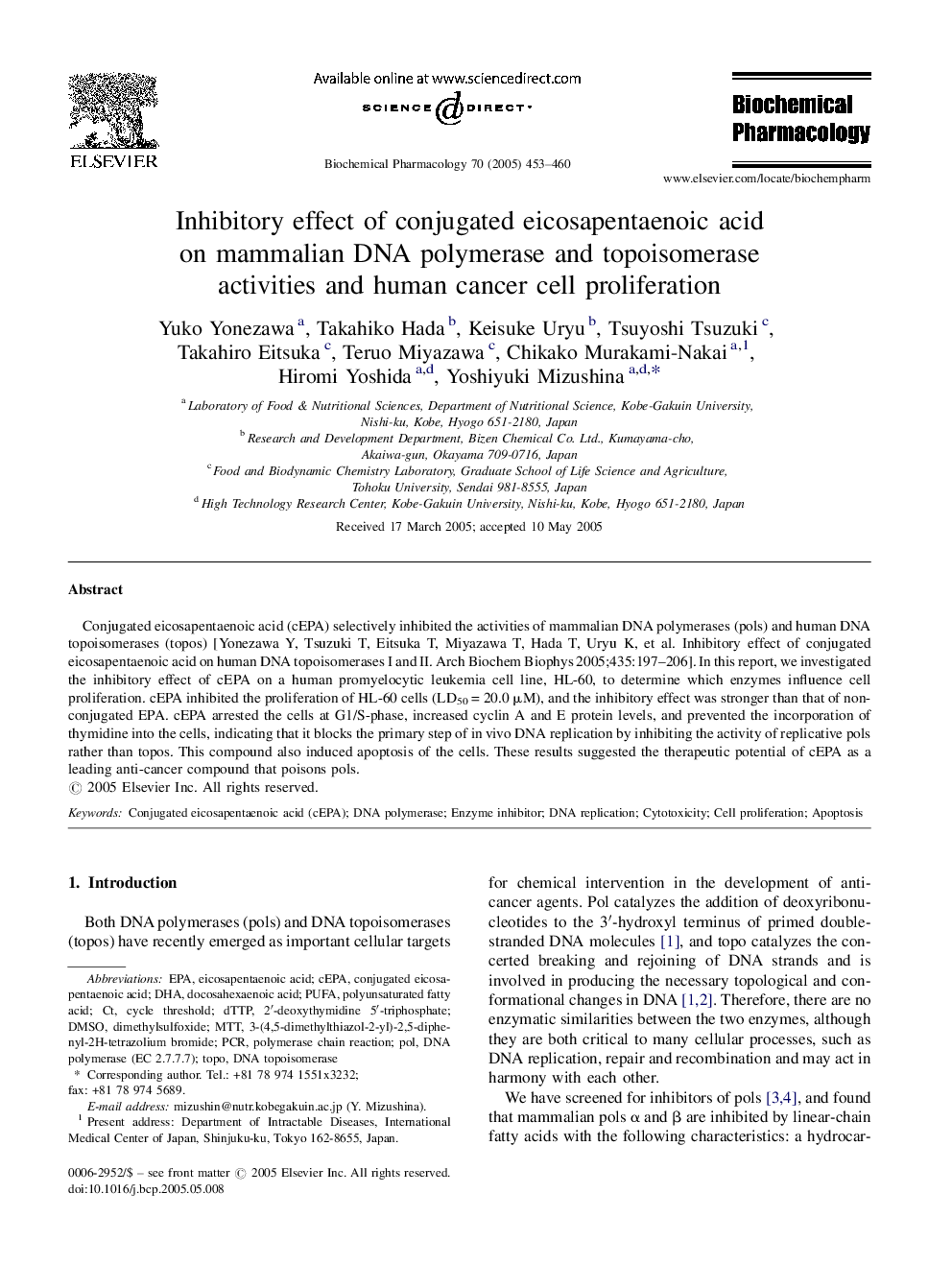| Article ID | Journal | Published Year | Pages | File Type |
|---|---|---|---|---|
| 9001598 | Biochemical Pharmacology | 2005 | 8 Pages |
Abstract
Conjugated eicosapentaenoic acid (cEPA) selectively inhibited the activities of mammalian DNA polymerases (pols) and human DNA topoisomerases (topos) [Yonezawa Y, Tsuzuki T, Eitsuka T, Miyazawa T, Hada T, Uryu K, et al. Inhibitory effect of conjugated eicosapentaenoic acid on human DNA topoisomerases I and II. Arch Biochem Biophys 2005;435:197-206]. In this report, we investigated the inhibitory effect of cEPA on a human promyelocytic leukemia cell line, HL-60, to determine which enzymes influence cell proliferation. cEPA inhibited the proliferation of HL-60 cells (LD50 = 20.0 μM), and the inhibitory effect was stronger than that of non-conjugated EPA. cEPA arrested the cells at G1/S-phase, increased cyclin A and E protein levels, and prevented the incorporation of thymidine into the cells, indicating that it blocks the primary step of in vivo DNA replication by inhibiting the activity of replicative pols rather than topos. This compound also induced apoptosis of the cells. These results suggested the therapeutic potential of cEPA as a leading anti-cancer compound that poisons pols.
Keywords
2′-deoxythymidine 5′-triphosphateEPA3-(4,5-dimethylthiazol-2-yl)-2,5-diphenyl-2H-tetrazolium bromideDNA topoisomeraseCEPADTTPDMSOMTTTOPOcycle thresholdEicosapentaenoic aciddocosahexaenoic acidPolyunsaturated fatty acidPUFACell proliferationApoptosisDHADNA polymeraseDimethylsulfoxideCytotoxicityEnzyme inhibitorDNA replicationpolymerase chain reactionPCRpol
Related Topics
Health Sciences
Pharmacology, Toxicology and Pharmaceutical Science
Pharmacology
Authors
Yuko Yonezawa, Takahiko Hada, Keisuke Uryu, Tsuyoshi Tsuzuki, Takahiro Eitsuka, Teruo Miyazawa, Chikako Murakami-Nakai, Hiromi Yoshida, Yoshiyuki Mizushina,
